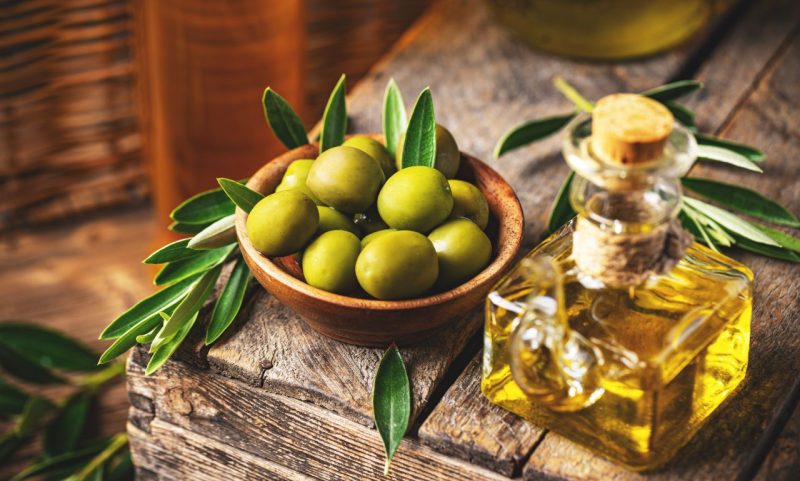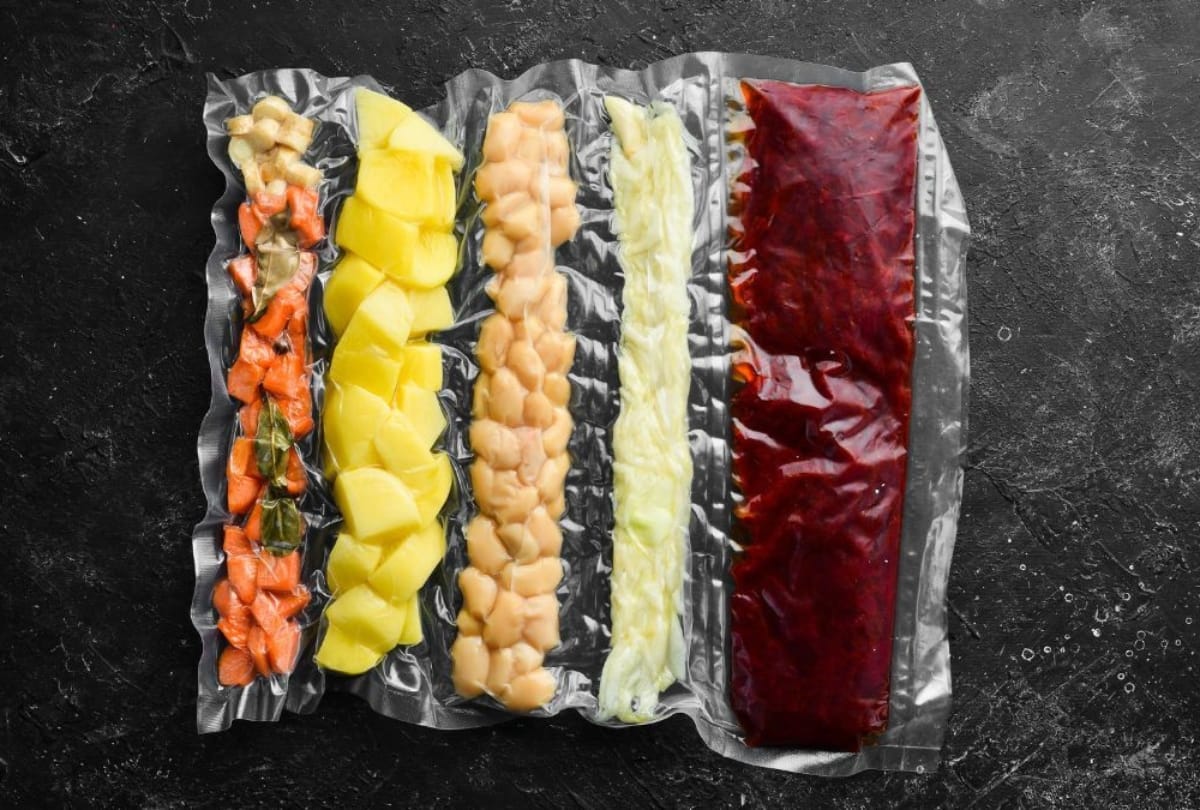Ever wondered what the difference is between olive oil and sunflower oil, or curious why coconut oil is so popular in certain recipes? The oil you use in your kitchen is more than just a tool; it's a flavor enhancer that can transform any dish. Whether you're a beginner cook or have been preparing meals at home for years, choosing the right oil can transform your cooking! In this blog post, we'll explore 10 oils every kitchen should have.
Oil for daily use
Every kitchen has a reliable selection of oils for everyday use. Whether you're baking, frying, or sautéing, these oils are essential for most meals. Below is an overview of the essential oils that can transform your meals from good to great.

Olive oil
Types and applications
Olive oil, a favorite in many cuisines, is both versatile and nutritious. From sautéing vegetables and marinating to dressing salads, olive oil has a wide range of uses. You'll find olive oil in various grades, such as extra virgin for a rich flavor and regular olive oil for everyday use. Olive oil is an essential ingredient in kitchens around the world. By experimenting with different types of olive oil, you can refine and enhance your dishes.
Health benefits
Olive oil isn't just a flavor enhancer; it's also a healthy choice. Known for its high concentration of monounsaturated fatty acids, it's often associated with heart health and a balanced diet. Studies have shown that regularly consuming olive oil can help lower bad cholesterol levels and promote healthy skin and hair. Adding olive oil to your diet is a positive choice for your overall well-being. Are you a foodie or simply a conscious eater? Olive oil offers a tasty and healthy addition to your kitchen!

Sunflower oil
Use in the kitchen
Sunflower oil is a common oil in many cuisines, known for its light, neutral flavor. It has a high smoke point, making it excellent for stir-frying, baking, roasting, and deep-frying. This oil works well with a wide variety of dishes without overpowering the flavor.
Nutritional information
In terms of nutrition, sunflower oil is a source of vitamin E, an important antioxidant. It also contains polyunsaturated fats, making it a heart-healthy choice. However, as with all oils, moderation is key, as it also adds calories to your meal. Sunflower oil offers a versatile and healthy option for everyday cooking and fits well into a balanced diet.
Rapeseed oil (rapeseed oil)
Cooking and baking
Canola oil is a popular choice for both cooking and baking. With a neutral flavor and a high smoke point, it's versatile in the kitchen. It can be used for sautéing, grilling, and even in salad dressings. The oil's mildness ensures it doesn't overpower the flavors of other ingredients, making it a go-to choice for many chefs.
Health considerations
From a health perspective, rapeseed oil offers benefits thanks to its low saturated fat content and a good balance of omega-3 and omega-6 fatty acids. It can contribute to a healthy heart and is often included in a balanced diet. As with all oils, conscious use is important, but rapeseed oil is a sensible choice for everyday dishes.
Special cooking oils
Specialty cooking oils give your dishes a special touch. Whether it's coconut oil or sesame oil, they quickly and easily add a unique flavor. Ideal for those who want to try something different.

Sesame oil
Sesame oil is a favorite in Asian cuisines, adding a rich, nutty flavor to stir-fries, dressings, and marinades. The oil is potent, so a little goes a long way. Its high smoke point makes it suitable for baking and frying, and it's especially popular in dishes where you want to add a distinctive flavor.
Flavor profile
With a unique and complex flavor profile, sesame oil offers depth and richness. Its warm, nutty flavor can be the star of a dish or a subtle background. It pairs well with both meat and vegetables and can transform an everyday dish into something special. It's fun to experiment with, as it gives your dishes a completely different flavor!

Coconut oil
Use in baking and healthy cooking
Coconut oil is beloved for its versatility in the kitchen. It's suitable for both baking and healthy recipes, with its subtle coconut flavor adding a tropical touch to dishes. It's solid at room temperature but melts easily, making it a popular substitute for butter in vegan dishes. Coconut oil is also a popular substitute for olive oil!
Nutritional value
Although rich in saturated fats, some consider coconut oil a healthier choice due to its unique fatty acid composition. It contains medium-chain triglycerides (MCTs), which can provide quick energy. However, moderation is recommended due to its high calorie content. Coconut oil can be a tasty addition to cooking, but as with all oils, conscious use is important.
Oils for frying and baking at high temperatures
For frying and baking at high temperatures, you need oils with a high smoke point. These oils retain their properties and flavor, even at high heat. They're ideal for preparing various dishes crispy and flavorful, without the oil itself becoming overpowering.

Peanut oil
Frying and stir-frying
Peanut oil is a versatile oil often used for deep-frying and stir-frying. It has a pleasant, mild flavor that pairs well with many dishes. Its high smoke point makes it a favorite choice for high-temperature cooking, making ingredients crispy and flavorful without burning.
Taste and smoke point
With a smoke point around 230°C (450°F), peanut oil is excellent for high cooking temperatures. Its subtle, nutty flavor adds a layer of complexity to dishes without being overpowering. Whether you're deep-frying or making a quick stir-fry, peanut oil offers stability and flavor, making it a valuable addition to any kitchen.

Avocado oil
Baking and roasting
Avocado oil is a luxurious choice for baking and frying, known for its creamy texture and rich flavor. With a very high smoke point of around 270°C (520°F), it's excellent for high-temperature cooking. It adds a subtle avocado flavor, making it a delicious option for many dishes.
Health benefits
Avocado oil is not only delicious but also nutritious. It contains healthy monounsaturated fats and is rich in vitamins E and K. Moreover, it's often linked to improved absorption of certain nutrients from vegetables. With these health benefits and its versatility in the kitchen, avocado oil is a smart and tasty choice for everyday cooking.

Grape seed oil
Neutral taste
Grapeseed oil is known for its light, neutral flavor, making it a versatile choice in the kitchen. Without an overpowering taste, it complements a wide variety of dishes, from salad dressings to baking, and allows the flavors of other ingredients to shine.
Various applications
The versatility of grapeseed oil makes it suitable for a variety of culinary applications. Its high smoke point makes it a good choice for frying and sautéing. It also works well in marinades and emulsions, such as mayonnaise. Whether you need an oil that stays in the background or one that gives your dishes that extra touch, grapeseed oil can do it all. Its adaptability in the kitchen makes it a handy oil to have on hand.
Oils for dressings and seasonings
Oils used for dressings and seasonings can make a salad or side dish even more delicious. They not only add flavor but also bind other ingredients together into a harmonious whole. Choosing the right oil is key to truly enhancing your dish's flavor.

Walnut oil
Salad dressings and sauces
Walnut oil is a great choice for salad dressings and sauces, with its rich and slightly bitter flavor adding depth and complexity. It works particularly well with vinegar or lemon juice, and its nutty flavor complements various lettuces and cheeses. A little walnut oil can transform a simple salad into something special. Because of its strong flavor, it's often best to mix it with a more neutral oil.
Taste characteristics
Walnut oil has a strong and distinctive flavor, with a rich, nutty essence that can enhance a dish. It has a delicate texture and should be handled with care, as it can be damaged by excessive heat. Store it in a cool, dark place and use it to enhance cold dishes or as a finishing touch to hot dishes to preserve its subtle, refined flavor.
Safflower oil
General applications
Safflower oil is a versatile and neutral oil that can be used in a variety of culinary applications. From frying and sautéing to dressings, it's a popular choice due to its high smoke point and mild flavor that doesn't overpower other ingredients. It works well in both sweet and savory dishes.
Health aspects
Health-conscious chefs value safflower oil for its high unsaturated fat content and low saturated fat content. As with other oils, it's important to use it in moderation, but for those looking for a healthy oil that complements a variety of dishes, safflower oil is an excellent choice.
Choosing the right oil
Cooking with the right oil can make a huge difference in taste and health. Here are the key points:
- Olive oil: Great for baking and dressings, good for the heart.
- Sunflower oil: High smoke point, suitable for frying.
- Rapeseed oil: Neutral, good for baking and cooking.
- Sesame oil: Known for its distinctive flavour, ideal for Asian dishes.
- Coconut oil: Good for baking and fits into a healthy kitchen.
- Peanut oil: Ideal for frying and stir-frying.
- Avocado oil: Healthy alternative for baking and frying.
- Grape seed oil: Neutral taste, versatile in use.
- Walnut oil: Rich flavor for dressings and sauces.
- Safflower Oil: Good for general use, heart-healthy choice.
Choosing the right oil doesn't have to be complicated. If you focus on the needs of the dish and aren't afraid to experiment, you can easily transform a dish from ordinary to amazing. Whether you're a novice cook or an experienced one, the oils in this blog post can help you improve your cooking skills and enhance your meals.
Recipes
Olive oil
Try a classic Italian bruschetta with freshly chopped tomatoes, basil, and garlic, drizzled with extra virgin olive oil. The rich flavor of the olive oil blends perfectly with the fresh ingredients.
Sunflower oil
This is your go-to oil for frying. Make crispy homemade fries by cutting potatoes into strips and frying them in sunflower oil until golden brown.
[product=French fry cutter]
This French fry cutter is ideal for both professional kitchens and home use, with different blades for the perfect fries or wedges.
[/product]
Coconut oil
Experiment with healthy baking recipes. Replace butter with coconut oil in your next batch of muffins or brownies . The subtle coconut flavor adds a tropical touch.
Sesame oil
A few drops of sesame oil can elevate an Asian stir-fry. Try it in a stir-fry with vegetables, tofu, and soy sauce.
Avocado oil
With its high smoke point, avocado oil is excellent for grilling vegetables. Lightly brush the vegetables with avocado oil, grill them until al dente, and sprinkle with a little lemon juice.
[product=citrus-press]
This sturdy citrus press effortlessly extracts every last drop of juice from your citrus fruits, while the large handle provides excellent leverage and minimal effort.
[/product]
Walnut oil
Make a simple yet elegant salad dressing by combining walnut oil with a little balsamic vinegar, mustard, and honey. Perfect over a fresh salad with goat cheese and toasted walnuts.



Leave a comment
This site is protected by hCaptcha and the hCaptcha Privacy Policy and Terms of Service apply.